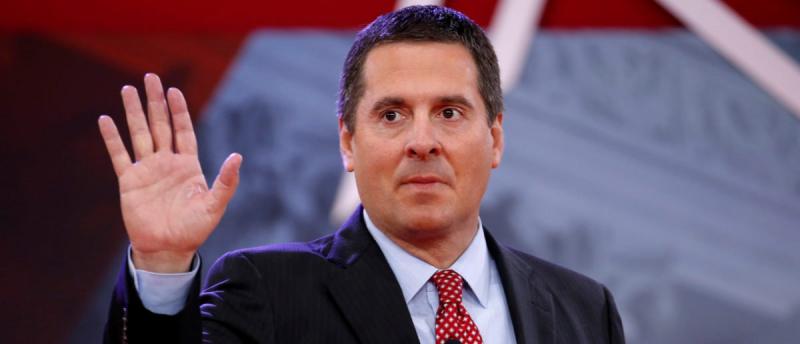
Congressman Devin Nunes (R-Calif.) today introduced H.R. 6444, legislation to index the calculation of capital gains taxes to inflation. The legislation, known as the Capital Gains Inflation Relief Act, would end the taxation of inflationary gains leading to the creation of more wealth and a stronger economy.
All Members of Congress should support and co-sponsor this pro-growth legislation.
“Ending the taxation of inflationary gains will have clear, immediate economic benefits and will increase the wealth of Americans across the country,” said Grover Norquist, President of Americans for Tax reform. “The value of all property in America would increase. Trillions in land, buildings and share of stock would move to higher and better use. The capital gains tax on the increased number and amount of sales would dramatically increase federal revenues.”
Under current law, the capital gains tax fails to account for gains that are based on inflation. This unfairly exposes taxpayers to additional taxation. For example, an investor makes a capital investment of $1,000 in 2000 and sells that investment for $2,000 in 2017 will be taxed for a $1,000 gain at a top capital gains tax rate of 23.8 percent. After adjusting for inflation, the “true gain” is much lower – just $562. (1,000 in the year 2000 equals $1,438 in 2017, according to the Bureau of Labor Statistics Inflation Calculator).
This “inflation tax” has real world consequences. For instance, property owners may be dis-incentivized from selling their property because of higher levels of taxation. According to a 2013 analysis by the Tax Foundation on individual capital gains taxes, the average effective rate excluding gains from inflation between 1950 and 2012 was 42.5 percent, nearly twice today’s 23.8 percent top capital gains tax rate.
Congressman Nunes should be applauded for his leadership in working to end the taxation of inflationary gains.
At the same time, the inflation tax can and should be ended through the regulatory authority of the Treasury Secretary.
The Treasury Department has the legal authority to index capital gains taxes to inflation, as noted by Lawyers Charles J. Cooper, Michael A. Carvin and Vincent Colatriano in a 1993 legal memo published in Virginia Tax Review, and again by Cooper and Colatriano in a 2012 legal memo published in the Harvard Journal of Law and Public Policy.
This effort also has historic support for this effort:
- Larry Kudlow, the Director of the National Economic Council, supports using Treasury’s regulatory authority to index capital gains taxes to inflation. In a CNBC op-ed published on August 11, 2017, he described indexation as a way to promote economic growth and prosperity:
- President Trump’s absolutely best economic policy so far has been his relentless rampage against onerous, burdensome, costly, prosperity-killing regulations on business. And the taxation of inflationary capital gains fits right in there. It is an unfair and misguided policy that punishes risk and success. The president should use his executive authority — as he so often has to drain the swamp — to remove this prosperity-killing practice.
- President Trump’s absolutely best economic policy so far has been his relentless rampage against onerous, burdensome, costly, prosperity-killing regulations on business. And the taxation of inflationary capital gains fits right in there. It is an unfair and misguided policy that punishes risk and success. The president should use his executive authority — as he so often has to drain the swamp — to remove this prosperity-killing practice.
- Current and former members of Congress, led by Vice President Mike Pence, support indexing capital gains taxes to inflation. Pence introduced legislation in 2007 with 88 co-sponsors including now-Office of Management and Budget Director Mick Mulvaney, House Speaker Paul Ryan (R-Wis.) and House Ways and Means Chairman Kevin Brady (R-Texas).
- Senator Ted Cruz (R-Texas) has introduced legislation indexing capital gains taxes to inflation. This legislation is co-sponsored by Senators Pat Toomey (R-Pa.) and Jim Inhofe (R-Okla.).
To learn more information about indexing capital gains to inflation and who is supporting it, please go to https://www.atr.org/indexing-capital-gains-taxes-inflation-resources.

